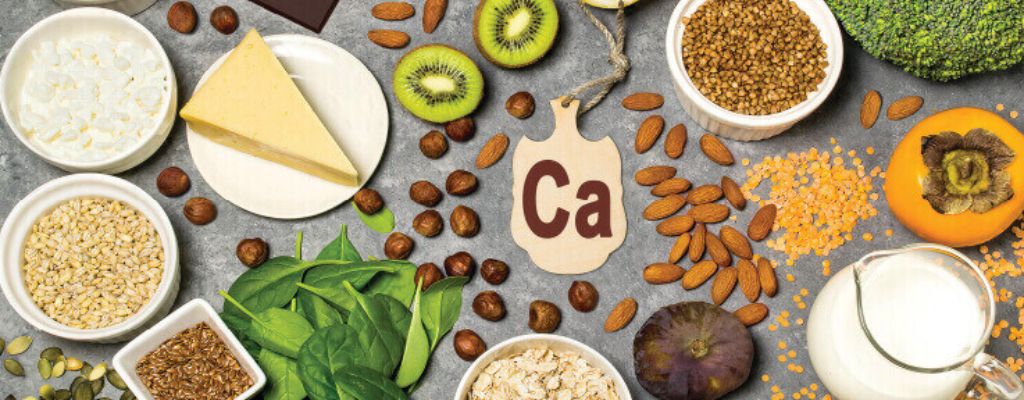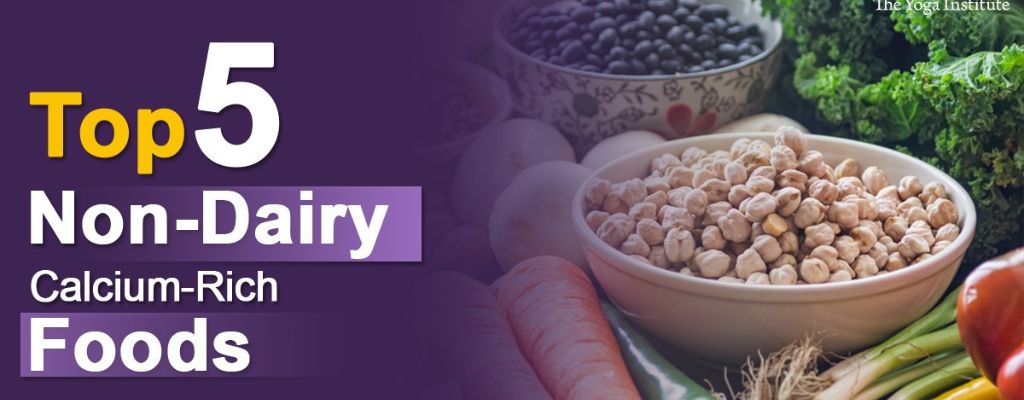5 Non-Dairy Foods That Are High in Calcium | A Nutrient-Packed Alternative
Calcium is an essential mineral that plays a vital role in bone health, muscle function, nerve transmission, and overall health and well-being. While dairy products like milk, yogurt, and cheese are well-known sources of calcium, they may not be suitable for everyone due to lactose intolerance, dairy allergies, or dietary preferences. Fortunately, there are plenty of non-dairy foods that are rich in calcium, making it possible to meet your calcium needs without consuming dairy. In this blog, we’ll explore five nutrient-packed non-dairy foods that are high in calcium and can be easily incorporated into a balanced diet.

1. Leafy Green Vegetables
Leafy green vegetables are excellent sources of calcium and other essential nutrients, making them a valuable addition to any diet—especially for those seeking non-dairy sources of calcium. Spinach, kale, collard greens, bok choy, and Swiss chard are all rich in calcium and can be enjoyed in a variety of dishes, from salads and stir-fries to soups and smoothies.
For example, one cup of cooked spinach contains approximately 245 milligrams of calcium, which is about 24% of the recommended daily intake for adults. Other leafy greens like kale and collard greens offer similar calcium content per serving, making them convenient options for boosting your calcium intake without relying on dairy products.
2. Fortified Plant-Based Milk Alternatives
Many plant-based milk alternatives, such as almond milk, soy milk, oat milk, and rice milk, are fortified with calcium to provide similar nutritional benefits as dairy milk. These dairy-free alternatives offer a creamy texture and delicious flavor while delivering essential nutrients like calcium, vitamin D, and vitamin B12.
When choosing plant-based milk alternatives, opt for varieties that are fortified with calcium and other nutrients to ensure you’re getting an adequate amount in your diet. Check the nutrition label to see how much calcium is added per serving, as fortified plant-based milks can vary in calcium content depending on the brand and type.
3. Tofu and Soy Products
Tofu and other soy-based products are excellent sources of calcium and protein, making them versatile ingredients in plant-based diets. Tofu, in particular, is a staple in many vegetarian and vegan dishes and can be used in a wide range of recipes, from stir-fries and salads to smoothies and desserts.
One half-cup serving of firm tofu contains approximately 253 milligrams of calcium, which is about 25% of the recommended daily intake for adults. Additionally, soy products like tempeh, edamame, and soybeans are also rich in calcium and can be enjoyed as part of a balanced diet.
4. Nuts and Seeds
Nuts and seeds are nutrient-dense foods that offer a host of health benefits, including being high in calcium. Almonds, sesame seeds, chia seeds, and tahini (sesame seed paste) are particularly rich in calcium and can be easily incorporated into meals and snacks.
For example, one ounce of almonds contains approximately 76 milligrams of calcium, which is about 7% of the recommended daily intake for adults. Similarly, one tablespoon of sesame seeds provides approximately 88 milligrams of calcium, making them a convenient way to boost your calcium intake.
5. Fortified Breakfast Cereals and Granola
Many breakfast cereals and granola products are fortified with calcium and other essential nutrients to provide a convenient and nutritious start to your day. Look for fortified breakfast cereals and granola that contain added calcium to help meet your daily calcium needs.
When choosing fortified breakfast cereals, opt for varieties that are low in added sugars and high in whole grains and fiber for maximum nutritional benefit. Enjoy your cereal with plant-based milk alternatives and fresh fruit for a delicious and satisfying breakfast that’s packed with calcium and other essential nutrients.

In conclusion, meeting your calcium needs without consuming dairy is entirely possible by incorporating a variety of non-dairy foods into your diet. Leafy green vegetables, fortified plant-based milk alternatives, tofu and soy products, nuts and seeds, and fortified breakfast cereals and granola are all excellent sources of calcium that can help support bone health, muscle function, and overall well-being. By including these nutrient-packed foods in your meals and snacks, you can enjoy the benefits of calcium while following a dairy-free or plant-based diet. Remember to focus on variety and balance in your diet to ensure you’re meeting all of your nutritional needs and maintaining optimal health.




